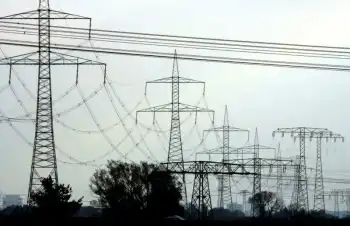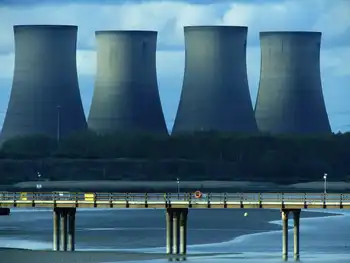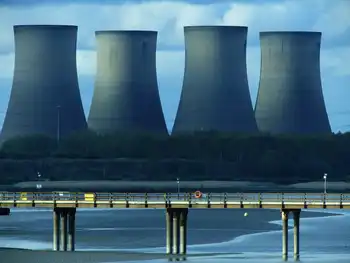Iran admits converting uranium to gas
TEHRAN, IRAN - Iran confirmed for the first time that it converted about 37 tonnes of raw uranium into gas, a key step ahead of enrichment, before it suspended all such activities in November under international pressure.
The confirmation means Tehran is in a position to quickly start enriching uranium if it chooses to end its suspension of enrichment-related activities. It comes at a crucial time, with Europe trying to seal an agreement to ensure Iran's nuclear program doesn't produce weapons.
The Europeans agreed last year that Iran could finish converting the 37 tonnes. Iran had begun processing the material in a rushed attempt to do it just before the suspension.
Mohammad Saeedi, deputy head of the Atomic Energy Organization of Iran, told AP Iran had processed the uranium into UF-4 gas. If processed further into UF-6, the material could be fed into centrifuges and enriched, allowing it to be used either to produce electricity or make nuclear weapons.
"We converted all the 37 tonnes of uranium concentrate known as yellowcake into UF-4 at the Isfahan Uranium Conversion Facility before we suspended work there," Saeedi said.
Experts said 37 tonnes of fully processed yellowcake can theoretically yield more than 90 kilograms of weapons-grade uranium, enough to make five crude nuclear weapons.
The United States accuses Iran of seeking to develop weapons, while Tehran insists its nuclear program aims only to produce electricity. To avoid referral to the U.N. Security Council for possible sanctions, Iran agreed to suspend actual enrichment at its Natanz enrichment plant in 2003. In late 2004, it suspended other enrichment-related activities — including conversion of yellowcake into gas and the building of centrifuges.
Natanz and the uranium conversion facility in Isfahan house the heart of Iran's nuclear program. The Isfahan conversion facility reprocesses uranium ore concentrate into gas, which is taken to Natanz and fed into centrifuges for enrichment.
Foreign ministry spokesperson Hamid Reza Asefi said recently that Iran, to show its dissatisfaction with deadlocked nuclear talks with European powers, decided to resume some uranium reprocessing activities.
Related News

Russians hacked into US electric utilities: 6 essential reads
WASHINGTON - The U.S. Department of Homeland Security has revealed that Russian government hackers have gained deep access to hundreds of U.S. electrical utility companies, gaining far more access to the operations of many more companies than previously disclosed by federal officials.
Securing the electrical grid, upon which is built almost the entirety of modern society, is a monumental challenge. Several experts have explained aspects of the task, potential solutions and the risks of failure for The Conversation:
1. What’s at stake?
The scale of disruption would depend, in part, on how much damage the attackers wanted to do. But a major cyberattack…




